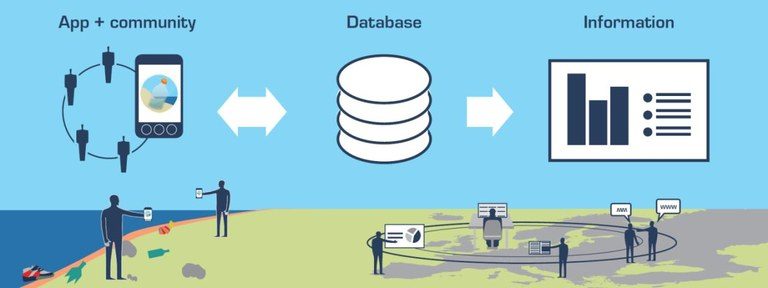As stated by the European Environment Agency (EEA), anyone can collect litter at the beach and become a scientist for the day with the Marine Litter Watch app. Litter, plastics in particular, is accumulating in our seas and coasts mainly due to current unsustainable consumption and production patterns, poor waste management and the lack of public awareness. Marine litter is an increasing threat to the marine environment, to human health and our well-being. It has cross border impacts on wildlife and habitats. Without tackling marine litter, Europe cannot have healthy seas.
The European Union is addressing the problem of marine litter through the Marine Strategy Framework Directive (MSFD), which requires Member States to monitor the state of our seas and take the measures needed to reach or maintain its ‘good environmental status’ by 2020. However, legislation alone cannot solve this problem. We all contribute to and are affected by marine litter. It is therefore crucial to engage citizens to better understand, prevent and reduce it.
Although we can see that marine litter is a growing concern, we need more data to properly assess the extent of the problem. In this respect, citizens can play a major role in collecting data and information needed to support authorities to better manage and prevent marine litter.
Active participation in data collection activities can also help raise awareness among citizens and communities of environmental issues prevailing in their local area. This awareness is key to help induce sustainable practices and behaviour.
With these concerns in mind, namely filling data gaps and facilitating citizens’ engagement in environmental issues – marine litter in this case, the EEA has developed Marine LitterWatch (MLW). MLW combines citizen engagement with modern technology to help tackle the problem of marine litter. It aims to collect data on marine litter on beaches relevant for the MSFD to support official monitoring, with the help of interested citizens and communities. It also allows the collection of data from non-official initiatives such as clean-ups.

